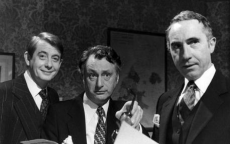
According to Kevin Theakstons traditional, public administration model of the relationship between civil servants and ministers, the latter are said to make decisions based on the advice given to them by the former. However, there are some opposing arguments to this theory as well as points of agreement.
Supposedly, officials are non-partisan and impartial; they are able to serve any government. Whereas the ministers represent their party and have to take full responsibility of any decisions made. Therefore it’s argued that the civil servants simply offer advice, unbiased to the interests of the party, while the ministers make decisions that they can justify to parliament – thus agreeing with the statement.
However despite the officials being unbiased to the party, the Whitehall community model suggests that the relationship is more of a mutual alliance. The theory states that civil servants recognise that within a department they have common interests with ministers. Civil servants have links to organised group interests, while ministers have political and ideological commitment in arguing the departmental case. This suggests that the relationship between civil servants and ministers is a cooperative one, as opposed to the one in the statement.
Alternatively, it can be argued that civil servants only ever offer advice because ministers are transient and a cooperative relationship doesn’t have time to develop. Between 1945 and 2004 the turnover of ministers was roughly double that of civil servants. This leads to ministers being very trustworthy of officials as they have been in their department for a long time and have become familiar with lines of policy. Therefore, agreeing with the statement, ministers are keen to listen to the expert advice of the civil servants and then make the decisions themselves.
Image: http://www.telegraph.co.uk/news/8349709/The-Yes-Minister-guides-for-civil-servants.html
In spite of that, despite a long time in the department resulting in considerable expertise, many are also wary of civil servants developing ‘mandarin power’. Mandarins are the most senior officials and it’s suggested that because of their ability, experience and expertise, they have a powerful influence over the department. Radical commentators and Prime Ministers such as Margaret Thatcher may see them as a cautious group hostile to innovation. This elite group are said to have more control over decision making than the ministers of department, therefore disagreeing with the statement.
To conclude, although officials can gain significant power, ultimately it is the ministers that take responsibility for any decisions made, despite whether or not they take on board the advice offered by officials. Therefore I believe it to be true that “civil servants decide while ministers decide”.
Image: http://www.telegraph.co.uk/news/8349709/The-Yes-Minister-guides-for-civil-servants.html

0 Comment:
Be the first one to comment on this article.